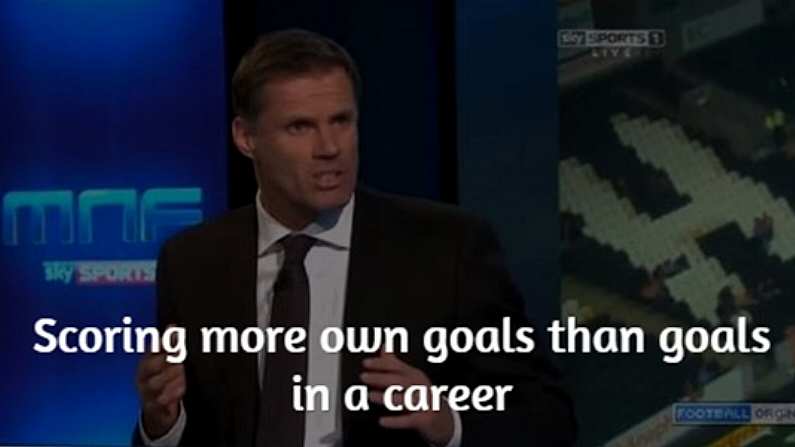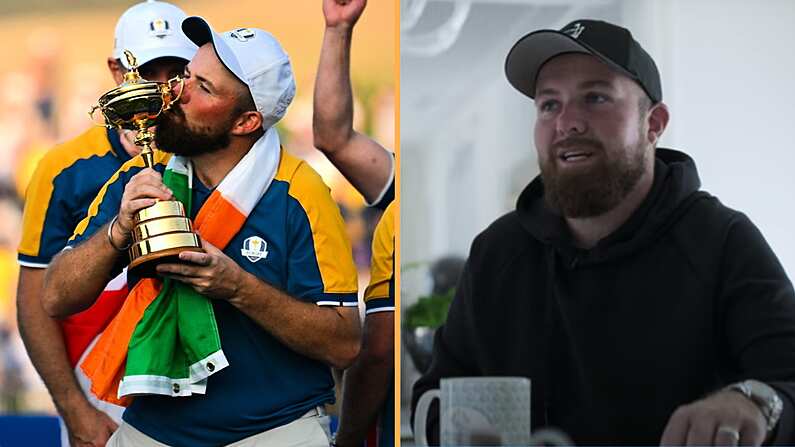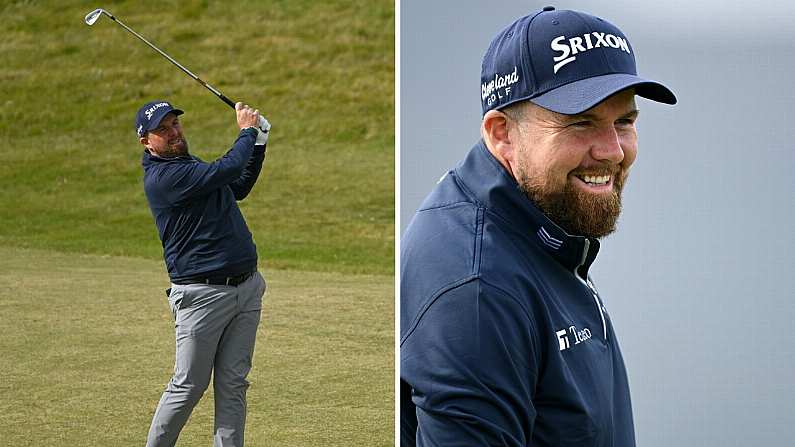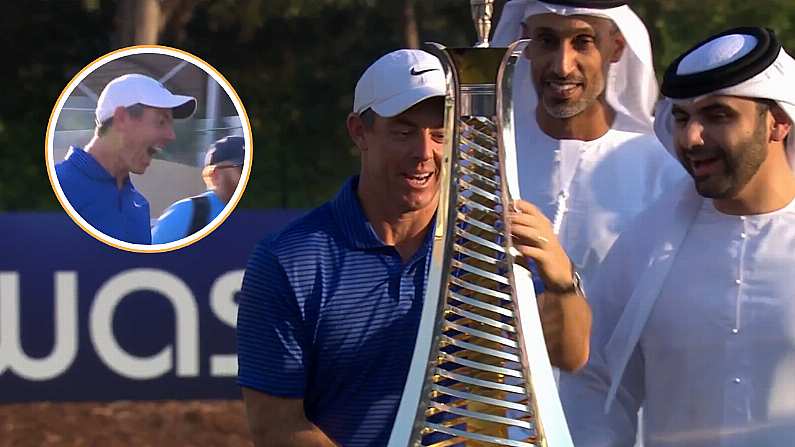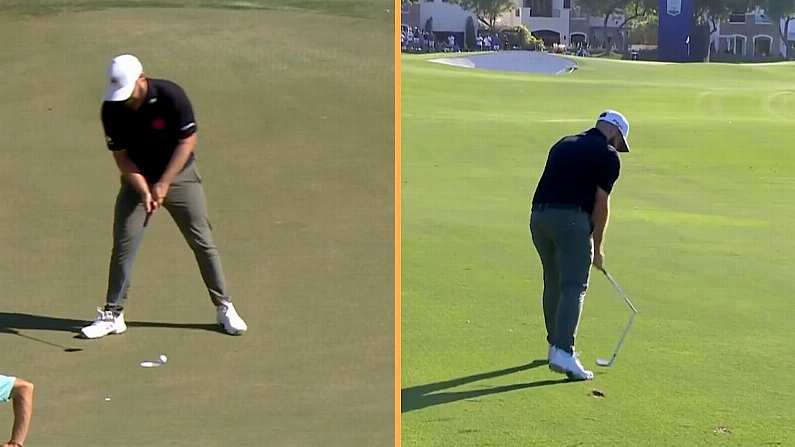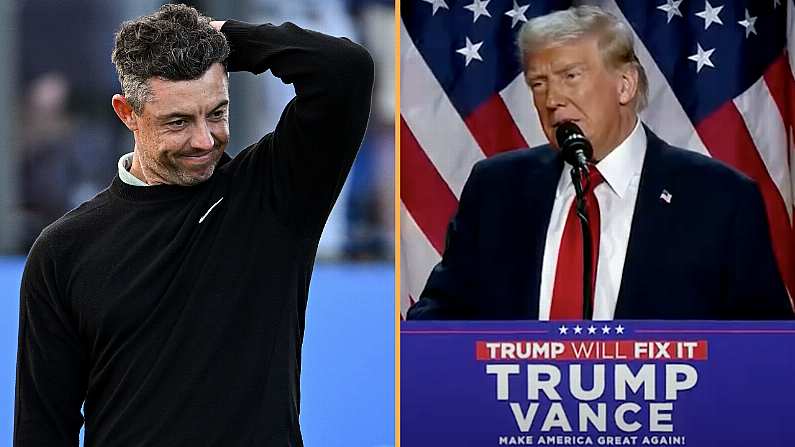10 of the oddest and most dubious achievements in sporting history...
Greg Norman: The Saturday Slam, 1986
If golf tournaments were only three rounds long, Greg Norman would have won about 15 majors rather than the two he did win.
Greg Norman was at his most achingly Greg Norman like in 1986. At the close of play on the Saturday evening at all four majors that year, Norman was sitting in first place.
He led the Masters from Seve and Bernhard Langer and Nick Price, only for the 46 year old Jack Nicklaus to come careering through on the Sunday to win his 18th major.
At the US Open at Shinnecock Hills, he led through 54 holes, his lead slipping from three shots after Friday to one shot by the end of Saturday. He crumbled to a miserable 75 on Sunday, falling to 12th spot as the veteran Ray Floyd took his fourth major.
At Turnberry for the British Open, he led by a shot after the Saturday and extended his lead to claim his first (and second last) major title.
He completed the Saturday Slam (though no one took account of it at the time) at the Inverness Club in Ohio for the USPGA, as he lead Bob Tway by four shots. A remarkable achievement. Unfotunately he couldn't hold on to take the actual trophy. The course was splattered in rain that Sunday and the final round had to be pushed back to Monday. Norman was beaten by Tway's dramatic
Padraig Kelly: Scooping the prize at the losing banquet, 1993
The last man from a losing team to win Man of the Match in an All-Ireland final, Kelly played three matches in Croke Park in 1993 and was Man of the Match in all of them.
He starred in Sarsfields' All-Ireland club final victory in March, was brilliant when a youthful Galway shocked Tipperary in the All-Ireland semi-final in August, and was then good enough to be awarded MOTM in the All-Ireland final against Kilkenny, despite the fact that Galway lost out thanks to PJ Delaney's late goal.
Despite all this, he did not win Hurler of the Year, a prize which went to DJ Carey (who was very subdued in the All-Ireland final).
If someone has a dusty, grainy old VCR of Kelly picking up his bit of Waterford Crystal off Ger Canning at the sombre 'losing banquet', please, I'm begging you, as an act of public service, put the damn thing up on youtube.
Most caps for the Irish rugby team without winning a match
Before the Brian O'Driscoll era, numerous fine Irish players had horrible win-loss ratios in an Irish jersey. Keith Wood was playing for Ireland five years before he won a game in the Five Nations, Simon Geoghegan won one of his first 14 internationals, against Zimbabwe. Tony Ward only won five games in a green shirt. Even players from relatively successful eras like Ollie Campbell lost marginally more than they won.
John Robbie is today one of the most prominent broadcasters in South Africa, beginning as a sports reporter and branching out into news and current affairs, with the late Nelson Mandela being counted among his fans.
Robbie impressed enough in an Irish shirt to be chosen at scrum half during the 1980 Lions tour of South Africa, never lost once in eight games and started on the test team that defeated the Springboks 17-13.
However, in nine appearances for Ireland between 1976 and 1981, he was on the losing side in every match.
A former Leinster Senior Cup winner, he was playing for Greystones and working for Guinness when he lost his job for breaking the anti-apartheid boycott after touring with Ireland in 1981.
He stayed out there, becoming the Transvaal’s most capped player and coming within a whisker of being selected for the Springboks. Now, he’s a household name in the country.
The Buffalo Bills: A little I'm hurt but not yet slain
Many teams have lost back-to-back finals, some have even lost three years in a row (Galway footballers 1941-43) but the Buffalo Bills are perhaps the only team to fall at the showpiece four years running.
The intolerable pain suffered by the Bills and their fans was almost too hard to bear. Documentaries on the team are crushingly difficult to watch. The closest they came to the Vince Lombardi trophy was at the end of the 1990 season, when Scott Norwood's last minute kick to win it just drifted wide. Over the next few Super Bowls, they got progressively further away from victory. At the end of the 1992 and '93 seasons, they were beaten out the gate by the Dallas Cowboys.
Andy North - big game player
Walter Hagen declared that 'it takes a good player to win one US Open, it takes a great player to win two.' Andy North won only three golf tournaments in his entire professional career. Two of them, however were in the US Open, making him the least prolific double major winner of all time.
He won his two US Opens in 1978, where he crawled over the line (making a messy bogey at the last to take victory by one shot) and 1985, where he crawled over the line by making a messy bogey at the last to win. Still made them he did. His rivals for the title each of those years reads like a who's who of nobodies, Tze-Chung Chen, JC Snead, Dennis Watson and Dave Barr.
Jamie Carragher
The Dixie Dean of the OG game, Carragher scored more goals against Liverpool than he did for them in his illustrious career at Anfield. While Richard Dunne was more prolific at finding his own net than Carragher, he was also more prolific at finding the other team's net. Carragher was expert at giving his own goalkeeper no chance.
He found his own net seven times in all, twice against Manchester United in the one game in the 1999/00 season. On four occasions when he found the net did it actually benefit Liverpool.
That whole Wigan-Bray connection there...
In 2013, Wigan Athletic became the only team in England to win the FA Cup and get relegated in the one season. Numerous teams, such as Portsmouth (2010), Middlesbrough (1997) and Brighton (1983) all made the big showpiece only to fall to more illustrious opponents.
However, in Irish football, the same thing has happened. In the 1999 FAI Cup Final saga, Bray Wanderers and Finn Harps squared off over three games. The Donegal team were the in-form team, while Bray had plummeted to the bottom of the League. However, with Harps failing to dispatch Bray in the first two encounters, the newly relegated side gained in confidence and a youthful Jason Byrne poked home the winner to give them a mildly surprising victory.
Leeds United : 1st to 17th
Possibly the worst title defence in the history of English football, worse even than Blackburn Rovers in 1996 (and Manchester United in 2014 for that matter).
Within a few years of Leeds' success, football changed so dramatically that it was hard to credit that a team managed by so unglamorous a figure as Howard Wilkinson could have possibly won the English League title.
The 1991-92 team had a strong midfield, comprising of Gary McAllister, Gary Speed and David Batty. Rod Wallace alternated being playing as a striker and drifting out wide on the right. Tony Dorigo earned an England call-up. Up front, they relied strongly on the worthy target man Lee Chapman.
Posterity, however, has decided that Lee Chapman wasn’t a striking enough emblem for this success and has decided to overstate the role of the much more box office Eric Cantona, who only scored three goals in seven starts that season.
The following year was a different story.
They were knocked out of the re-branded Champions League by Rangers before the knockout stage (the competition was still a knockout until it was whittled down to the final eight teams in 92-93).
They languished in the bottom half of the table from the off and eventually finished up in 17th place.
Remarkably, they did not win a single away game all season.
The only team to lose two matches in the championship and stay in it
Before 1997, the hurling championship was lob-sided but straightforward. There were four provinces. The winner of each province went through to the semi-final and from there they played off to find the winner.
What made this faintly absurd was firstly, the fact that Ulster hurling was generally too shite to justify an automatic semi-final place for their provincial victors and secondly, Galway were the only team in Connacht and so marched straight through to the semi-final (between 1994 and 97, Roscommon did enter a team in what was somewhat grandly titled 'The Connacht Final' but they were invariably hammered out the gate in front of a sleepy crowd).
Then the back-door and quarter-finals were introduced for provincial finalists. This was thought to be unfair to Galway, who still had to wait ages to play their first match and now were the only competitive team barred from getting a second chance.
By 2007, everyone had (at least) a second chance. Teams who lost in Munster or Leinster went into a round robin, from which two teams emerged, arriving in the quarter-finals.
They only team to avail of all these chances was Gerald McCarthy's Cork, who lost to Waterford in the Munster semi-final, were defeated by a point by Tipperary.
However, they still weren't dead. Victories over Offaly and Dublin ensured they got into the quarters against Waterford. That game ended in a controversial draw with Brian Gavin penalising Donal Óg Cusack for lying on the ball and awarding Waterford the equalising free. The following week, Waterford finally banished Cork from the 2007 championship.
https://www.youtube.com/watch?v=w5RM5BTJFLA
Quarter-finalists without winning a match
Italia 90 was a good time to pull this off. There were hardly any goals scored and the tournament sparked a debate about bringing in bigger goals and even reducing the number of players per side. They ended up plumping for a somewhat more modest modification, namely, barring goalkeepers from picking up back-passes.
Ireland got all the quarters, playing five games in all, scoring two goals and conceding three. Ireland finished their group with a statisstically identical record to Holland and lots were drawn to see who would get who in the second round. The mysterious Monique sealed her place in the Gary Mackay Hall of Fame by pairing Ireland with Romania and so the luckless Dutch had to take on Germany in Milan (watch here).
No one minded Ireland's failure to win a match or score more than two goals. Charlie Haughey, who had spent years ignoring invitations from the FAI to show up at Lansdowne Road, arrived in the dressing room with Brian Lenihan (Senior) and praised the players as true sporting sons of Ireland.
According to Niall Quinn, Tony Cascarino and Andy Townsend went away with the impression that he owned a teashop.

